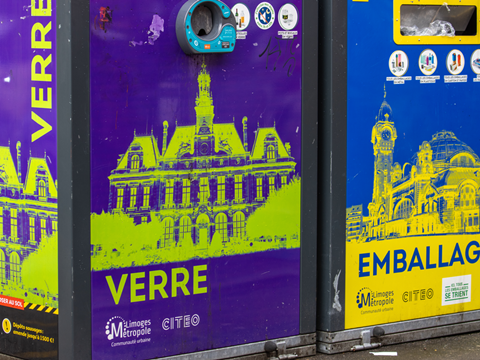
Thirty-three years after France first implemented Extended Producer Responsibility (EPR) for packaging, Citeo CEO Jean Hornain tells UNEP how universal participation, legal accountability, and the creation of formal jobs can incentivize plastic waste reduction.
In the interview, Hornain underlines Citeo’s position as a producer responsibility organization (PRO) for packaging under French producer responsibility legislation, which holds companies financially liable for the environmental impact of their products throughout their life cycle.
“Each time companies sell a product with packaging, they pay a small fee to us based on unit sales and weight,” he explains.
“This money – which amounted to 1.6 billion euros last year for packaging and paper – supports the reduction of packaging waste, the eco-design of packaging, reuse and recycling programmes, as well as anti-littering initiatives and public-awareness campaigns.
“The goal is to develop what we call a 100 per cent circular economy, which means using as little material as possible, using it as long as possible, and once its useful life has finished, recycling it.”
Hornain goes on to differentiate extended producer responsibility systems from taxation. Whereas a tax “removes accountability”, is susceptible to fluctuations, and directs funds to the state, EPR funds travel through PROs and out to stakeholders (“usually the municipalities”) in a process described as a “permanent, reliable fund.”
“Extended producer responsibility is a way to internalize environmental costs and engage companies to minimize their impact on resources while reducing their carbon dioxide emissions,” he says – adding that failing to shoulder the ‘true cost of packaging’, as UNEP puts it, is “not a sustainable way to operate.”
Although he describes EPR as “flexible” and suggests that countries can adapt the model to suit their individual needs, Hornain lays out his idea of the contributing factors to a successful scheme.
Making it mandatory is set to level the playing field for all companies, and every stakeholder, from consumers to governments, should be actively involved in the process.
On that note, a “strong system of control” at governmental level should ensure that every brand is paying into the system.
“For example, if you are a company that wants to do business in France, you need to have an ID number and register with a PRO,” he says.
Additionally, those collecting waste in the informal sector should be integrated into the formal recycling system with “decent” and “safe” jobs.
Around 70% of household packaging now said to be recycled in France, but beyond this, Hornain points to last month’s launch of a reusable packaging system for large food retailers across four regions in Western France – a move intended to bring reusable options to 16 million consumers.
“With the fees we collect from our members, we have designed standardized packaging, for beer bottles for instance, that multiple companies will use,” he elaborates. “Instead of being thrown away, they’ll be collected, cleaned and refilled.
“We are looking to do the same thing for several other types of packaging, such as soup jars, juice bottles and milk bottles. This is what a circular 21st-century extended producer responsibility looks like.”
In Hornain’s view, the French extended producer responsibility system has “[never] been challenged in principle” because “everyone realizes that we have no choice – we need to reduce our impact on the environment and the amount of resources we consume.”
On the other hand, he admits that “there are questions about the efficiency of our system. Is every euro being used as efficiently as possible?”
Prompted by UNEP to discuss the possibility that EPR programmes raise costs for consumers, he suggests that prices increase by an average of €1 to €2 per piece of packaging; but he adds that this is “much, much lower” now than in thirty years’ time if no progress is made in terms of plastic pollution or waste production.
“I always say that extended producer responsibility is not perfect,” he goes on to say. “It’s not magical. It doesn’t solve everything.
“But it’s a very effective and valuable tool. And I’m encouraged by the fact that no one questions the goal – to create a circular economy for plastic and other types of packaging.”
Previously, Recycling Netwerk Benelux and Minderoo Foundation were among the signatories of a position paper calling for the revision of European legislation to improve EPR measures and support waste prevention, separate collection, high-quality recycling, and reuse.
While they felt that existing EPR legislation had been ‘moderately successful’ in facilitating separate collection and recycling, it had apparently failed to hold companies fully accountable for their environmental impact, prevent the generation of waste, or encourage the manufacture of more sustainable products.
Since then, eBay has led a petition calling for EPR rules to implement a single point of registration and declaration, permit exemption or de minimis for micro-companies, and allow online marketplaces to declare products to EPR organizations to reduce the burden on SMEs.
Additionally, over fifty organizations have signed an industry statement arguing that the Waste Framework Directive’s recognition of state-run PROs could lower recycling rates, increase administrative costs, and impact both product availability and PRO transparency.
If you liked this story, you might also enjoy:
The ultimate guide to the Packaging and Packaging Waste Regulation in 2025
How are the top brands progressing on packaging sustainability?
Everything you need to know about global packaging sustainability regulation in 2025
The key to increasing the use of reusable packaging in supermarkets


















No comments yet